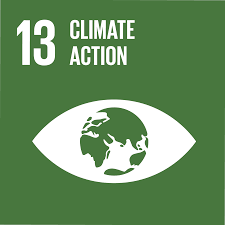Goods and services
We buy goods and services to operate our business with a total influenceable spend of around €250 million. Our main procurement categories are:
-
External staffing: our flexible shield structurally consists of a variety of independent experts. In addition, we have contracts with staffing agencies through which we can employ temporary specialists on demand;
-
Housing: all our office space is rented;
-
Mobility: we operate fleet of approximately 3,500 lease cars and have preferred suppliers for international travel;
-
Facility services: all our facility services (such as cleaning, security, catering, maintenance) are outsourced;
-
Technology: we purchase hardware, software and IT services to deliver our services.
Due to the nature of our business, most of our suppliers are based in the Netherlands. In the reporting year there were no major changes in our strategic supplier base.
All our purchasing activities cause CO2 emissions. We burn fuels to heat our buildings and power our cars and purchase electricity to charge our laptops, light our desks and cool our offices in summer. We buy airline tickets to travel for our international clients, visit Deloitte University or attend our internal network meetings. We use the railways to travel on shorter distances. Our suppliers use energy and emit CO2 to produce and transport their goods or render their services to us. Despite not operating in an energy intensive sector, it all adds up considerably.
To reduce the negative impact from our business on global warming, DTTL has adopted the WorldClimate programme. The objective of WorldClimate is to achieve carbon neutrality for all direct and indirect CO2 emissions by Deloitte worldwide by 2030. This science-based target is to be achieved by reducing where we can and compensating in a meaningful way where we must. The 2030 goals include:

-
-
Reducing our business travel emissions by 50% per FTE from 2019 levels;
-
Sourcing 100% renewable energy for our buildings;
-
Converting 100% of our fleet to hybrid and electric vehicles;
-
Engaging with our major suppliers with the goal of having two-thirds of them adopt science-based targets within five years;
-
Investing in meaningful market solutions for emissions we cannot eliminate.
-
Other elements of WorldClimate are Embed sustainability, Empower individuals, and Engage ecosystems.
Housing and travel
Deloitte the Netherlands has embraced the WorldClimate programme. As we had already set ambitious CO2 emission targets in our Connect for Impact strategy, we were able to commit to carbon neutrality for housing and mobility by 2025, five years ahead of the DTTL target. For other indirect emissions though, we follow the timeline defined by DTTL.
To realise this, we have set up a robust governance structure for internal sustainability. We have created the Sustainable Operations Team that consists of various topic owners (housing, fleet, travel, IT, procurement, talent and communications) to design and implement policy. Our businesses are connected through the Sustainability Taskforce, a group of passionate sustainability adapts from across our businesses.
For housing, we aim to rent office space in leading energy-efficient buildings. Good examples of such buildings are our office in Amsterdam (‘The Edge’), which has a BREEAM Outstanding certificate, and in Rotterdam (‘Maastoren’). All our offices are equipped with energy efficient lighting. Where we are the main tenant, we purchase renewable energy, where we are not, we aim to offset our share in the energy related emissions.
When employees opt for a lease car, we encourage them to lease energy efficient cars.
For mobility, we maintain a mobility policy that offers our employees the choice between a lease car, a cash option or public transport. When employees opt for a lease car, we encourage them to lease energy efficient cars. We do this by the inclusion of the energy costs in the available lease budget. In this way, choosing an energy efficient car becomes more attractive. In line with our ambition to be carbon neutral for mobility in 2025, we will introduce a new lease policy in 2021/2022 that phases out the use of fossil fuel powered vehicles and transitions to fully electric or hydrogen powered cars.
Internationalisation has required that we travel increasingly across borders, in many cases by plane. To minimise CO2 emissions and further control costs, we finetuned our travel policy. This policy outlines the conditions that we have set for international travel, both in terms of approvals designed to prevent unnecessary travel, and of travel choices to prevent unnecessary CO2 emissions and costs. In line with our reduction ambitions, we switched to rail instead of flying for short international travel where practical, and have defined additional guidance concerning travel class on international flights.
Table 08: Energy consumption, CO2 emissions and intensity
2020/2021 | 2019/2020 | 2018/2019* | Related emisions 2020/2021 | |||||
Housing | ||||||||
Electricity consumption | 7,775,283 | kWh | 8,760,710 | kWh | 9,329,933 | kWh | ||
Specific electricity consumption | 101 | kWh/m2 | 116.3 | kWh/m2 | 108.4 | kWh/m2 | ||
Scope 1 thermal energy consumption | 3,020 | GJ | 3,403 | GJ | N/A | |||
Scope 2 thermal energy consumption | 1,911 | GJ | 2,169 | GJ | N/A | |||
Total thermal energy consumption | 4,931 | GJ | 20,961 | GJ | N/A | |||
Specific thermal energy consumption | 0.064 | GJ/m2 | 0.278 | GJ/m2 | N/A | |||
Mobility | ||||||||
Total kilometres driven by lease cars | 52,567,212 | km | 90,850,301 | km | 101,841,977 | km | ||
Number of lease cars | 3,352 | 3,523 | 3,498 | |||||
- electric cars (incl. plug-in hybrids) | 872 | 685 | 502 | |||||
Kilometres/lease car | 15,680 | km | 25,788 | km | 29,114 | km | ||
Total petrol consumption | 2,524,161 | l | 4,514,237 | l | 5,383,209 | l | 7,027 | t |
Total diesel consumption | 193,570 | l | 581,182 | l | 1,134,994 | l | 631 | t |
Total LPG consumption | 297 | l | 483 | l | 0 | l | 1 | t |
Total electricity consumption cars | 1,650,136 | kWh | 1,590,645 | kWh | 919,680 | kWh | 784 | t |
Total kilometres travelled by air | 1,534,794 | km | 35,859,527 | km | 47,651,527 | km | 310 | t |
Total hotel nights | 1,558 | N/A | N/A | 49 | t | |||
Kilometres by air per FTE | 251 | km | 5,918 | km | 8,307 | km | ||
Total kilometres travelled by train | 1,513,020 | km | 13,749,589 | km | 9,987,013 | km | 3 | t |
Train kilometres per FTE | 248 | km | 2,269 | km | 1,740 | km | ||
Mobility CO2 intensity | 158 | g CO2/km | 175 | g CO2/km | 203 | g CO2/km | ||
Total CO2 intensity | 1.44 | t CO2/FTE | 4.05 | t CO2/FTE | 5.64 | t CO2/FTE | ||
Totals | ||||||||
Total CO2 emissions | 8,805 | t | 24,514 | t | 32,341 | t |
For an overview of conversion factors used, please see our 'Basis of reporting' section.
Ethical sourcing
On all our purchases, by default, our General Purchase Terms and Conditions apply. According to the Terms, our Supplier Code of Conduct is applicable. This Code describes our expected behaviours in terms of market behaviour, integrity, human rights, labour conditions and environmental management. In exceptional cases, where our Purchase Terms and Conditions don't apply, we make sure that provisions similar to our Supplier Code of Conduct apply.
Every new supplier has to be approved by our Reputation and Risk Leadership office after a thorough business relationship assessment. During a supplier assessment, we check whether the new supplier relationship can jeopardise our independence and if the new supplier is known for unethical or illegal behaviour (e.g. money laundering, human rights violations, corruption). For high-risk purchases or contracts higher than of €150k, there is always involvement from our Procurement professionals. In addition, for certain categories of services, such as IT, there are additional requirements around data security and system integrity.
Our partnerships with suppliers
For strategic goods and services, we engage in long-standing partnerships with our suppliers. Examples of such partnerships are our contracts with CBRE (workplace services), LeasePlan (cars), Microsoft (software) and HP (hardware).
Impacts
As a professional services provider, we consider our impact on manufactured goods and services to be limited. Nonetheless, we endeavour to be as efficient as possible with scarce natural resources. By ‘purchasing green’, using energy-efficient technology and working together with our suppliers on making a positive impact through our Supplier Code of Conduct, we aim to minimise our negative impacts on society and the environment. Our standing partnerships with suppliers enable us to take a long-term perspective on our impact and jointly work towards improvements. In many cases, such partnerships also include provisions aimed at improving the sustainability of our services. Examples of this are our procurement of for refurbished iPhones rather than new ones during the reporting year and our new mobility policy in which we closely collaborate with LeasePlan.

Even though we are not considered to be a polluting industry, we use fuel to go to work, visit our clients and maintain our international network. In addition, we heat and power our offices and our dedicated Server Centre. All these activities result in the emission of CO2 that contributes to global warming. To end our contribution to global warming, we have adopted a net-zero target. Through our strategic dashboard, we track and report our emissions on a quarterly basis and discuss our performance against target within our Leadership. As our CO2 reduction target is incorporated in our Connect for Impact strategy, it is part of the criteria for flexible reward of our Executive Board.